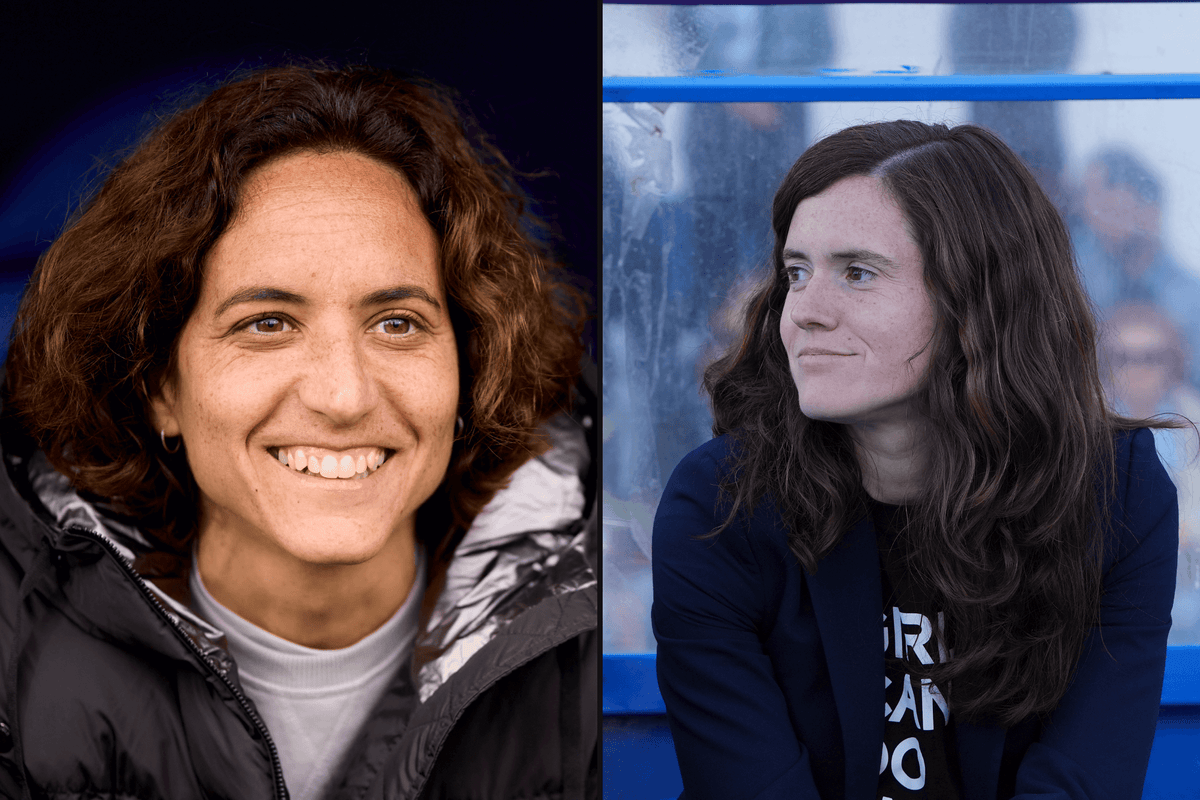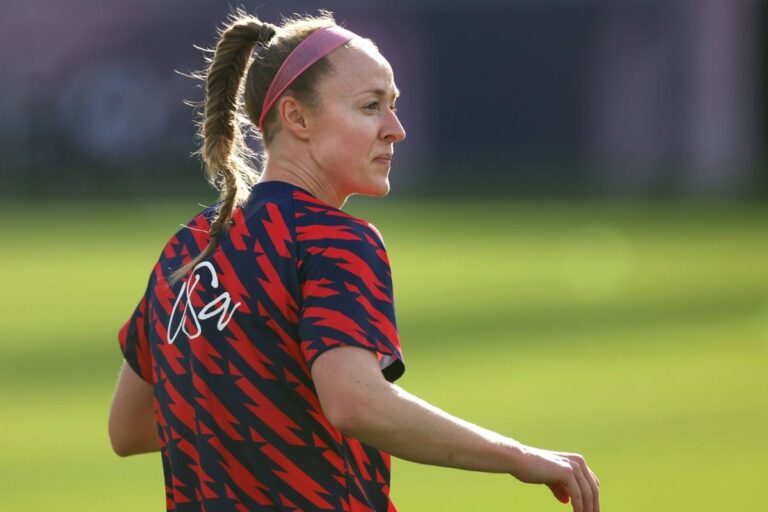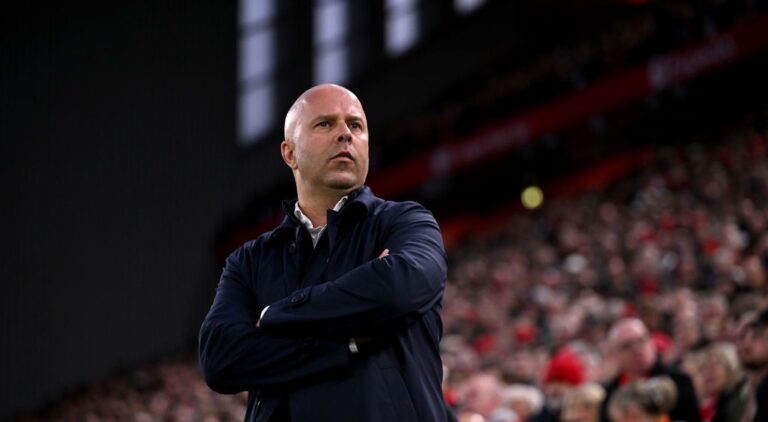
From Keyboard to Touchline: Journalists Transitioning into Football Coaches
Two months ago, when Scottish Premiership club Hearts were on the lookout for a new manager, they were reportedly considering Swedish coach Kalle Karlsson — possibly inspired by the success of another Swedish coach, Jimmy Thelin, who had guided Aberdeen to the top of the standings.
Unknown to many outside Sweden, The Scottish Sun aptly described the 43-year-old Karlsson as a candidate who would be a “left-field choice”, providing a detailed overview of his coaching journey based on data from Transfermarkt. However, this summary failed to highlight that Karlsson has spent much of his career not only as a football manager but also as a football journalist.
Karlsson began his career as a reporter for Expressen and later for Sweden’s largest newspaper, Aftonbladet, where he specialized in tactical analysis. His proficiency led him to become a television pundit. His coaching career remained relatively obscured until he took the role of assistant manager at his hometown team, second-tier Vasteras, in January 2020, all while continuing to contribute to Aftonbladet, primarily discussing the Premier League.
By mid-2021, Karlsson ascended to the position of club manager, and during his second season, he successfully steered Vasteras to promotion, marking their first top-flight season in 25 years. At that point, Karlsson was solely focused on management, returning to the roots of his early coaching aspirations.
“I was actually a football coach before I was a reporter,” Karlsson explains. “I pursued coaching after I sustained an injury at 18, which forced me to take a two-year break from playing. When I returned, I was in the fifth tier, which was quite low. After a year, the head coach invited me to be an assistant and manage the reserve team for a season. But at that time, I was transitioning to a full-time journalism career and couldn’t commit to coaching on evenings and weekends — so I stepped away from coaching for a decade.
“During that hiatus, I relocated to Stockholm and advanced my journalism career, eventually joining Aftonbladet. Initially, I focused on daily reporting but later concentrated on tactical writing. I maintained a blog covering the Premier League that gained traction, allowing me to dedicate time to that work during the day. By 2012, I had more availability in the evenings, enabling me to take charge of a team again — it was at the seventh tier, and then I accepted an assistant role in the fourth tier. But my journalism job continued to be my primary source of income.”
A decade or so later, Karlsson found himself coaching in the Allsvenskan, the premier division of Swedish football. His experiences last season mirrored those of Rob Edwards at Luton Town — despite his team being relegated, he received praise for his impressive performance with a club new to the top division. This was substantiated by some remarkable underlying statistics, with Vasteras’ data gaining widespread attention midway through the season, despite their scoring only three goals from an expected total of 18.3 (xG). Ultimately, they finished last but recorded the joint-fourth-best xG numbers in the league, a rare occurrence.
“Had this been a few years ago, before xG statistics were available, I might have been dismissed,” Karlsson admits. “Now, those statistics not only exist for me but for all coaches, sometimes allowing us to point to them to gain more patience from supporters and clubs.
“It was challenging for us and the players. Every losing team grapples with that issue. It can be mentally tough, but our players were not reacting in the typical ways when losing. We missed three penalties in the first seven matches, and we squandered clear scoring opportunities. We simply needed to convert our chances. Then during the summer (midway through the Swedish season), we lost three key players to injuries and sold two others. As a result, we couldn’t replicate our first-half success.”
Karlsson aims to continue with Vasteras to achieve promotion again next season, yet he is being considered for potential openings at some of Sweden’s top clubs during the winter.

Kalle Karlsson was connected to a potential shift to Scotland earlier this year (Ake Hedvall)
Karlsson’s narrative is not entirely unique. In Liga F, the top women’s league in Spain, Barcelona consistently dominates the competition, sometimes finishing the season with a flawless record.
Consequently, the race for second place tends to attract the most intrigue — often involving Real Madrid. However, two years ago, they were pushed into second place by Real Sociedad, led by Natalia Arroyo. Having previously managed the Catalonia women’s team, this was her first club coaching experience. Like Karlsson, her playing career ended prematurely due to injury, leading her to become primarily known as a women’s football journalist for a significant period. She contributed to the Catalan newspaper Ara and worked as a commentator for beIN and Movistar.
“As a child, I primarily envisioned myself as a television commentator, being present around the game — interviewing players or articulating the action for viewers,” the 38-year-old Arroyo reflects. “Yet, as a female player, it was disheartening to see the lack of awareness about women’s football. No one seemed to be knowledgeable about our successes or failures, even during matches. With time, I recognized that informing people was crucial. I rejected the narrative that ‘nobody cares about women’s football’ — it stems from the lack of coverage.”
“I wasn’t a ‘real’ journalist, not searching for breaking stories; I focused more on accurately analyzing the football match. My goal wasn’t to find the ‘big story’ but rather to enhance the understanding of the game — more a coach with a keyboard — or a microphone.”

Natalia Arroyo with her Sociedad players (Gari Garaialde/Getty Images)
Her four-year tenure with Real Sociedad, which concluded last summer, included a second-place finish and reaching the Copa del Reina final, but she ultimately garnered a reputation for fostering a bold attacking style of play.
“In most games, I believe we had a strong mindset. We challenged the bigger clubs, which was significant — and it altered the mentality of the players,” she notes. “The club has a rich history, yet sometimes they felt unsure of their capabilities. I think my youthful and fresh perspective helped encourage bravery among the players, leading us to win derbies (against Athletic Club), an achievement I take pride in.”
As eScored reported earlier this year, Arroyo was a contender for the Barcelona coaching position this season, although it ultimately went to their assistant, Pere Romeu, in line with the club’s typical approach. She would have been Barcelona’s first female manager. After briefly considering a move to the Women’s Super League this summer, she is currently back in media, including penning a column for El Pais. This week’s edition covers strategies for players to excel as substitutes.
In the meantime, she is contemplating her next career move. “I’m considering opportunities outside of Spain,” she states. “I’m analyzing the differences in various countries’ football styles and reflecting on my own path — evaluating whether I should transition to an assistant role. I’m open to entering men’s football or even a national team. Nonetheless, journalism and media work offers me a great balance in life for a few months compared to coaching.”
A similar narrative exists across the border in Portugal. Mariana Cabral, a former right-back and national champion with the Lisbon-based 1st Dezembro, who once reigned over Portuguese women’s football before disbanding due to financial constraints, was coached by Helena Costa, most notable for her brief stint with men’s Ligue 2 side Clermont in 2014. “She was my greatest inspiration,” Cabral shares, recalling her retirement at 25 when she recognized that earning €100 per game wasn’t sustainable as a profession.
Initially relocating from a small island in the Azores to Lisbon to pursue journalism, she considered studying sports but was unsure about the potential career paths in that field. “The only option I saw was becoming a PE teacher. The internet was still in its infancy, and I didn’t know much about sports journalism — women were largely absent in that realm. Therefore, I opted for journalism, intending to transition to sports journalism. Writing has always been my passion.”
After completing her studies and interning at A Bola — a publication she had read daily as a child — she began working at Expresso, a weekly newspaper, while simultaneously earning her coaching badges. Balancing her journalism and coaching ambitions, she covered Portugal‘s triumph at Euro 2016, coinciding with her appointment to manage Sporting CP’s under-19 squad.
“I spent a decade with Expresso,” she recounts. “My work wasn’t limited to sports; I covered news stories too. Eventually, I wrote more sport-focused articles for their magazine section, leading to an opening in their sports department, which I embraced.
“The pinnacle of my journalism career was Euro 2016. While I attended several tournaments with Portugal, that experience stood out. I went solo because the newspaper’s budget didn’t allow for additional coverage, and no one anticipated Portugal’s deep run in the tournament. I traveled alone for 39 days with just a small bag of clothes. I vividly recall the final. After our press conference, we waited a long time for the players, who were frustrated with our negative coverage of their earlier performances and ignored us in the mixed zone. It was surreal to witness them celebrate the victory without acknowledging us!”
“That said, my time at Expresso was enriching, allowing me to interview remarkable figures such as Jose Mourinho, Vitor Pereira (who recently moved to Wolves), Sarina Wiegman, and Pia Sundhage. This experience fostered my growth as both a journalist and a coach, equipping me with invaluable insights.”

Mariana Cabral worked her way up the ranks at Sporting (Carlos Rodrigues/Getty Images for The Coaches Voice)
Now coaching at Sporting, Cabral’s journey began at Benfica, progressing through various coaching roles. “Initially, I started with boys’ teams at Benfica before transitioning to women’s teams. My coaching sessions took place in the evening, and I managed my job at Expresso during the day. Following years of coaching and obtaining my badges, I committed to this career path.”
“Journalism doesn’t always provide job security. You often put in long hours with little recognition or financial reward. Football offers better compensation, albeit with less stability. My mother was horrified when I chose this path because I had a steady job! In football, your employment can change overnight.”
Eventually, she became the first-team coach, leading them to a second-place finish and a Portuguese Cup victory. “That was the highlight of my career. The final took place at the Jamor national stadium. Having won the cup as a player, it was significant for me to succeed as a coach and to have fought for the opportunity to host our cup final in that esteemed venue. It validated our efforts!”
While Cabral’s story is unique, it reflects a historical trend in Portuguese football that dates back nearly a century. Candido de Oliveira, a former player for Benfica, distanced himself from the pitch to pursue journalism and authored several works, including founding the A Bola sports newspaper, where Cabral completed her internship. He held managerial roles with Sporting and the national team and his books on football tactics have influenced Portuguese football. In his honor, the Portuguese Super Cup bears his name.
Cabral departed from Sporting this season due to disagreements over the treatment of the women’s team. She is weighing opportunities from across Europe, expressing that the National Women’s Soccer League in the United States remains the pinnacle of women’s football.
Having been on both sides of press interactions, one might expect these three coaches to be comfortable in front of the media. “The journalists often remarked on my respectful demeanor,” Arroyo says. “While many coaches are negligent toward the press, I understand the importance of their role. When my friends interviewed me, I encouraged them to ask whatever they needed. This professionalism transcends personal friendships.”
However, they experience trepidation around media portrayals, particularly in headlines.
“I’m not one for short responses,” Arroyo continues. “I have concerns about overly simplified headlines — life is nuanced and demands proper explanation. Often when you read a headline post-interview, it feels one-dimensional or harsh; I aim for more clarity, which can be challenging.”
Karlsson shares similar thoughts on media representation. “I often anticipate the kind of headlines they seek when they ask certain questions. I know when to be vocal and when to hold back. The industry is competitive, and sensationalism prevails at times. I view it through the lens of entertainment rather than pure facts.”
Cabral learned to avoid reading articles about her teams. “In the past, I would skim through newspaper coverage, but I quickly realized the lack of understanding from many writers about our game. At the outset, there were not many journalists specializing in women’s football in Portugal. I often found myself reading about women’s football in England, Spain, or the USA rather than locally.”
The fundamental difference between a journalist and a coach, however, lies in managing individual players, a complex task.
“Communication with players differs entirely from journalism,” Arroyo asserts. “It revolves around people and emotions. Understanding others is critical, and I’m unsure how much journalism aligns with that aspect. It’s the essence of coaching. Effective communication is a valuable skill, but managing players’ diverse needs — be it addressing illness or feelings of insignificance — requires a psychological approach.”

Arroyo on the sideline during a 2022 match between Real Sociedad and Levante (Gari Garaialde/Getty Images)
Karlsson concurs. “For me, it’s more about managing individual personalities than focusing solely on tactics. Julian Nagelsmann has mentioned that coaching is 30% tactics and 70% social skills, and I fully agree. While tactics matter, it’s paramount to navigate a variety of interpersonal dynamics to achieve success.”
Cabral, having climbed the coaching ladder, increasingly appreciates the importance of human management alongside tactical expertise.
“In my earlier years, I prioritized tactical elements — integrating theory into training sessions. However, I learned from seasoned coaches about the significance of interpersonal communication: ‘How do you approach players? How do you adapt your communication style?’ It’s amusing because I’ve come to share the same perspective now!
“That aspect is vital. From the outside, one often fixates on tactics, but inside, interpersonal dynamics within the team matter a great deal. Initially, I underestimated that complexity. Oversimplification of these complexities is common, yet they play a crucial role in football.”
Recognizing this facet of coaching has shaped their approach toward media engagements. Arroyo and Karlsson express greater caution when articulating opinions regarding coaching decisions.
“I’m certainly more cautious now,” Arroyo shares. “Understanding the multitude of factors coaches consider on matchday has lent me pause. While I might prefer a different starting XI choice, I now recognize there’s often a context I’m unaware of.”
Karlsson echoes her sentiment. “During the time I balanced journalism and coaching, my outlook shifted. I gained insight into the complexities of decision-making. From the outside, it’s easy to critique a manager’s choices, but on the inside, the realities and nuances make those decisions much more taxing. Many underlying factors remain invisible to the spectators.”
Ultimately, the disparity between observing from the press box and experiencing the technical area is profound.
“I aspire to be a coach,” Arroyo affirms. “It’s where I truly belong. The adrenaline, the passion, the exhilaration… I thrive on it. Engaging with the media offers time for critical reflection on football, which I cherish, but my ultimate fulfillment stems from coaching and cultivating a deeper understanding of the sport.”
Cabral is more decisive. “I absolutely will not return to journalism. No chance at all. That’s the one certainty I hold. I’ve received numerous offers for commentary roles but turned them all down. I seek to recharge and then return to coaching.”
Karlsson encapsulates the sentiment perfectly. “Being involved in football as a coach is addictive,” he concludes. “The thought of existing without it is unfathomable.”
(Top photos: Getty Images)









